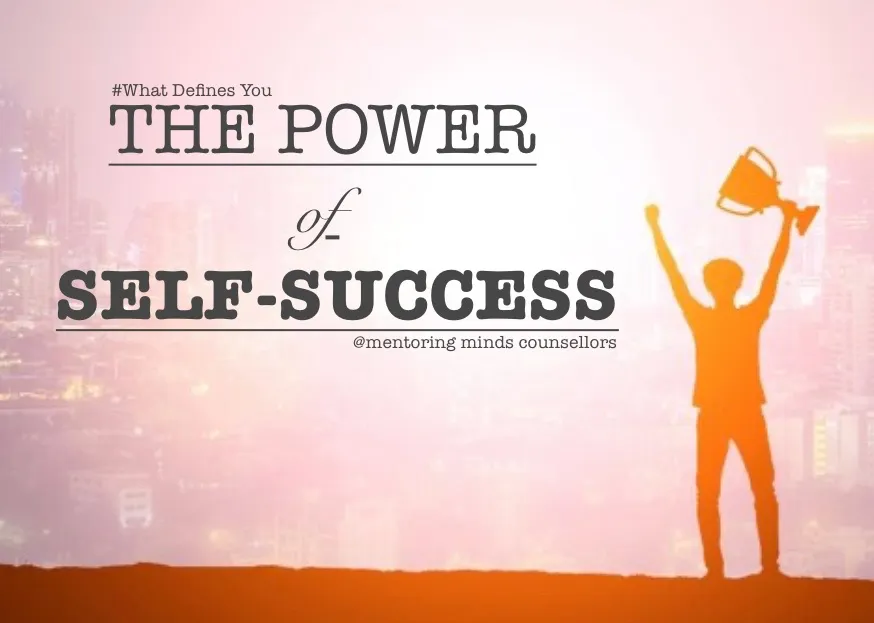Success is often viewed as the ultimate goal, a distant peak waiting to be conquered. But what if I told you that the true power of success doesn’t lie in the destination, but in the journey itself? Self-success, the kind that stems from within, is about creating a life that aligns with your values, passions, and vision. It’s not about chasing someone else’s idea of achievement but finding fulfillment in your own.
But, how can we understand the reduction of such a Power within our Brain?
1. Self-Doubt: The Silent Killer of Confidence
One of the first and most significant hurdles is self-doubt. It’s that nagging voice that whispers, “You’re not good enough,” or “You’ll never make it.” It’s easy to compare yourself to others and feel inadequate, but self-doubt is nothing more than a mental barrier.
Overcoming it starts with acknowledging that these thoughts are normal, but they don’t define us. Take small steps forward, celebrate your wins, no matter how small, and surround yourself with people who lift you up. Confidence isn’t something you’re born with – it’s built through action.
2. Fear of Failure: Paralyzing the Potential for Growth
Fear of failure can paralyze you, making you hesitant to take risks or try new things. This fear stems from a fear of judgment or the discomfort of the unknown. It’s tempting to stay in your comfort zone, but real growth happens outside of it.
Overcoming fear means reframing failure. Instead of seeing failure as the end, view it as a lesson. Each failure is an opportunity to learn, adjust, and improve. The most successful people are often those who have failed the most but kept going.
3. Lack of Focus: The Struggle of Distractions
In today’s world, distractions are everywhere from social media to constant notifications. When you’re constantly pulled in different directions, it’s easy to lose sight of your goals. Without focus, progress becomes slow, and success feels elusive.
Overcoming distractions requires intentional focus. Set clear, realistic goals and break them down into manageable tasks. Find a routine that works for you and stick to it. Remember that progress, even slow progress, is still progress.
4. Imposter Syndrome: Feeling Like You Don’t Belong
Imposter syndrome is the feeling that you don’t deserve your achievements or that you’re a fraud. It’s a common experience for many high achievers, especially when we step into new roles or face unfamiliar challenges.
Overcoming imposter syndrome involves recognizing that you belong. Your achievements are the result of your hard work and dedication. Instead of downplaying your successes, own them. You’ve earned them, and you are worthy of them.
5. Perfectionism: The Trap of “Never Enough”
Striving for excellence is different from striving for perfection. Perfectionism often leads to procrastination and burnout because nothing ever feels “good enough.” The pressure to be perfect can prevent you from taking action, leading to missed opportunities.
Overcoming perfectionism starts with embracing imperfection. Progress is better than perfection. Learn to accept that mistakes are part of the process and that you don’t need everything to be perfect to succeed. Done is better than perfect.
6. Lack of Patience: The Need for Instant Gratification
We live in an age where we expect quick results. The rise of social media and digital platforms has made everything feel instantaneous. But self-success is a long-term game, not a sprint. Patience is key, yet it’s something we often overlook.
Overcoming impatience requires shifting your mindset. Success doesn’t happen overnight, and that’s okay. Embrace the process. Trust that every small step forward is a step in the right direction. Consistency will bring the results you desire.
Conclusion: Embracing the Struggles
We at Mentoring Minds Counsellors understand that the path to self-success is not without its obstacles, but each challenge is an opportunity to grow, learn, and become stronger. The true power of self-success lies not in avoiding difficulties, but in embracing them and continuing to move forward, regardless of the setbacks.


Leave a Comment